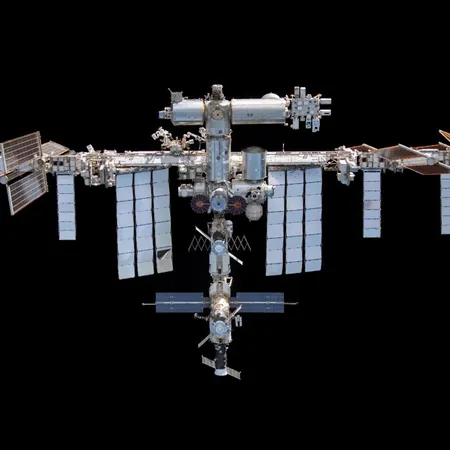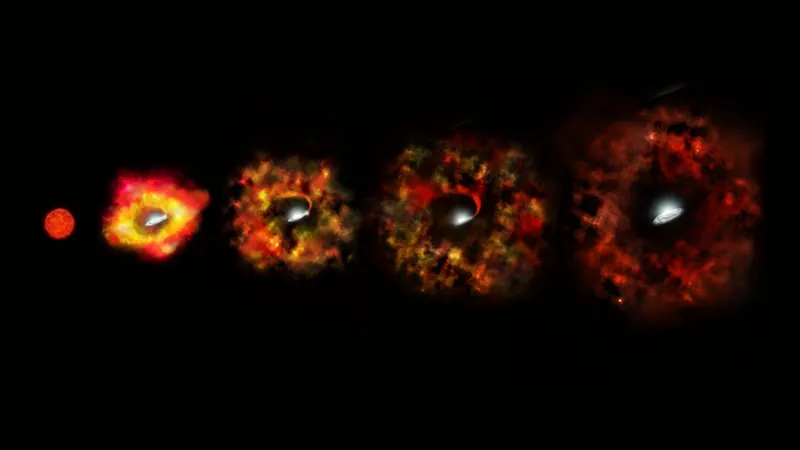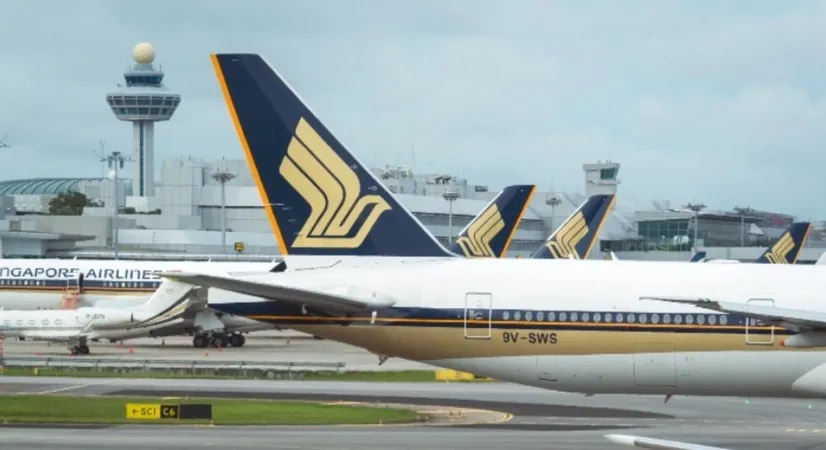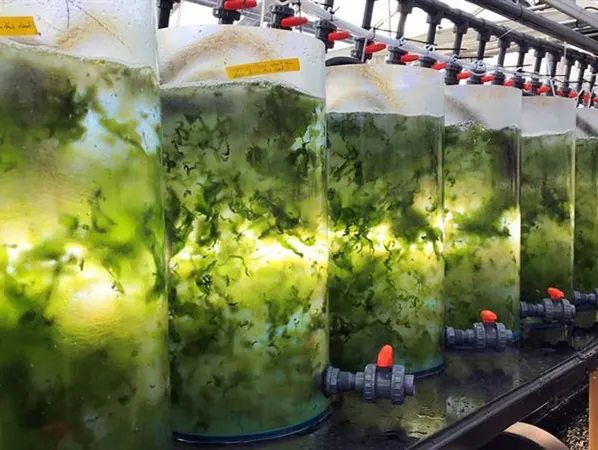
Tensions Rise as NASA and Roscosmos Clash over ISS Air Leak: Are We Facing a Crisis?
2024-11-14
Author: Daniel
In a developing saga that could impact the future of the International Space Station (ISS), NASA and Roscosmos are embroiled in a significant disagreement regarding an air leak in the Russian segment of the orbiting laboratory. The precarious situation has escalated fears of a potential "catastrophic failure" affecting a Russian module, a situation that space agencies are desperate to avoid.
The controversy came to a head during a recent meeting of NASA's ISS Advisory Committee on November 13, revealing differing assessments between the U.S. and Russian teams about the leak's origin and implications. A small yet persistent leak has been detected in a vestibule of the Zvezda service module called PrK, which separates a docking port from the main module. This leak has been an ongoing issue for several years, prompting crews to seal off the affected area when access is not required.
Bob Cabana, the former NASA astronaut turned associate administrator who now chairs the advisory committee, explained that while both teams are investigating the leak's root cause, they remain at an impasse. Russian engineers attribute the cracks to "high cyclic fatigue" resulting from micro-vibrations, whereas NASA posits that a complex mix of factors - including pressure, mechanical stress, and environmental effects - are contributing to the problem.
Adding to the complexity, a report from NASA's Office of Inspector General (OIG) revealed that both agencies are honing in on internal and external welds as possible culprits for this leak, which had ramped up in severity from its initial discovery in 2019 to a troubling 1.7 kilograms of air loss per day earlier this year.
While NASA officials had initially attempted to downplay these concerns, stating that recent repairs had successfully reduced the leak rate by a third, the issue remains a focal point for both agencies and the astronauts aboard the ISS. NASA astronaut Michael Barratt, who recently completed a nearly eight-month mission in space, noted that Russian counterparts have been transparent about the leak, but NASA remains cautious, implementing safety measures, such as keeping the hatch between the U.S. and Russian segments closed whenever the hatch to PrK is open.
Cabana further emphasized the lack of consensus between the two space agencies regarding the situation's severity. Russian teams maintain that the ongoing operations on the ISS are safe, while NASA air their doubts, expressing serious concerns over the structural integrity of the PrK module. "The Russians believe that continued operations are safe, but they can’t prove to our satisfaction that they are," Cabana stated. "Conversely, the U.S. believes it’s not safe but can’t prove to the Russians that that’s the case."
In a bid to bridge the divide, NASA and Roscosmos have jointly proposed a strategy to enhance collaboration by seeking insights from external experts in academia and industry to gain a more accurate understanding of PrK's structural integrity. Although no timeline for this initiative has been provided, NASA has begun working with an independent team to assess the leaks.
As a space station that has been continuously inhabited for over two decades, the ISS is not without its share of wear and tear. Barratt stated, "You expect some wear and tear, and we’re seeing that." As both agencies grapple with this pressing issue, the question lingers: Can NASA and Roscosmos come together to solve this potentially life-threatening dilemma, or will their differences lead to an unprecedented crisis in space exploration? Stay tuned as we follow this story closely!





 Brasil (PT)
Brasil (PT)
 Canada (EN)
Canada (EN)
 Chile (ES)
Chile (ES)
 España (ES)
España (ES)
 France (FR)
France (FR)
 Hong Kong (EN)
Hong Kong (EN)
 Italia (IT)
Italia (IT)
 日本 (JA)
日本 (JA)
 Magyarország (HU)
Magyarország (HU)
 Norge (NO)
Norge (NO)
 Polska (PL)
Polska (PL)
 Schweiz (DE)
Schweiz (DE)
 Singapore (EN)
Singapore (EN)
 Sverige (SV)
Sverige (SV)
 Suomi (FI)
Suomi (FI)
 Türkiye (TR)
Türkiye (TR)